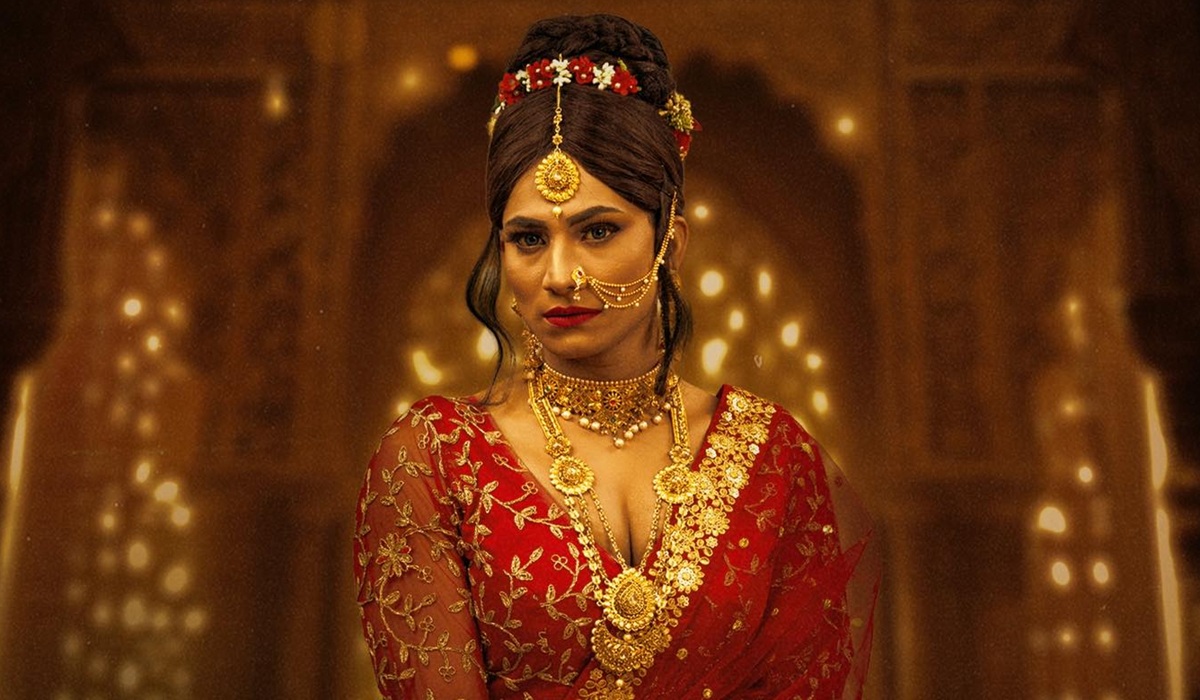I watch a lot of films. English, Hindi, Nepali, you name it, I’m usually at the theater, often already having devoured the trailer, read reviews, or at least skimmed some chatter online. But this time it was different. On a quiet weekday afternoon, at my mom’s insistence, I went to see Gunyo Cholo without knowing much about it. I hadn’t seen the trailer, hadn’t read a single review. The only thing I remembered was a set of promotional photos from when the film was first announced - Najir Husen dressed as a woman. Even back then, it caught my attention.
As someone who believes representation matters, I had mixed feelings. Najir is a talented actor, no doubt, but he’s a cisgender man playing a trans woman. Shouldn’t a trans woman be playing this role? I carried those doubts with me into the theater.
And then the film started.
Gunyo Cholo, directed by Samundra Bhatta and written by Bhatta along with Najir Husen, tells the coming-of-age story of Dev, also known as Gulabi, the child of a retired army general, born into a household that desperately wants a son. From childhood to adulthood, we follow Gulabi’s journey: the small signs of who she really is, the suffocating expectations of family, the heartbreak of rejection, and the escape to Kathmandu in search of acceptance.
For me, what made the film remarkable was that it placed a transgender character at the center of the story, not as a sidekick, not as a punchline, not as a passing symbol, but as the heart of the film. Too often, queer characters in Nepali cinema are reduced to comic relief. They show up to deliver exaggerated gestures, elicit a laugh, and then disappear, never given the depth or dignity of a full arc. This film is different. It gives Gulabi a voice, a past, and most importantly, a future.
Watching Najir embody Gulabi was an experience in itself. He doesn’t play her for laughs or for sympathy. Instead, there’s a rawness, a vulnerability, a kind of truth in his performance that makes you sit uncomfortably in your chair. And that discomfort is important - it forces you to reckon with the humanity of someone you may not fully understand. As a cisgender heterosexual woman, I can’t claim to know whether Najir’s portrayal fully resonates with the lived experiences of trans women. But what I can say is this: his performance moved me, challenged me, and stayed with me long after I left the theater.
The film also surprised me with its tone. It is at once tender and heartbreaking, but also unflinching in showing the prejudice Gulabi faces. There were moments in the theater where the audience laughed, sometimes at the most sensitive, intimate scenes, like Gulabi’s desire to dress as a woman or to kiss a boy. Sitting there, hearing that laughter, I realized how far we still have to go in terms of understanding and accepting transgender stories. And yet, the fact that Gunyo Cholo exists at all, and that it was being watched by such a diverse audience—grandparents, young adults, teenagers, even my own mother—felt like progress. Representation may not immediately change attitudes, but it plants seeds.
Another thing that struck me was the sheer draw of Najir Husen’s star power. On a weekday, at a 2 p.m. show, the hall was full. Generations sitting side by side, engaging with a story that many in our society would prefer to avoid. That, to me, is a quiet revolution. By the time the credits rolled, I couldn’t deny that Najir brought Gulabi to life in a way that demanded attention. And sometimes, in a place like Nepal, it takes a well-known face to pull a story like this into the mainstream.
And then came the moment that sealed the day. After the film ended, Najir Husen himself walked into the hall. The audience clapped, cheered, and crowded toward him. My mom and I managed to get a quick selfie with him. I told him honestly, “It was a very good movie. I loved it.” He smiled and replied simply, “Sabai jana lai herna bhannu hai.” (Tell everyone to watch.)
So here I am, doing exactly that. Watch Gunyo Cholo. Take your family. Sit through the discomfort, the laughter, the silence, the heartbreak. Because this isn’t just a film - it’s a story we’ve been waiting too long to tell.

